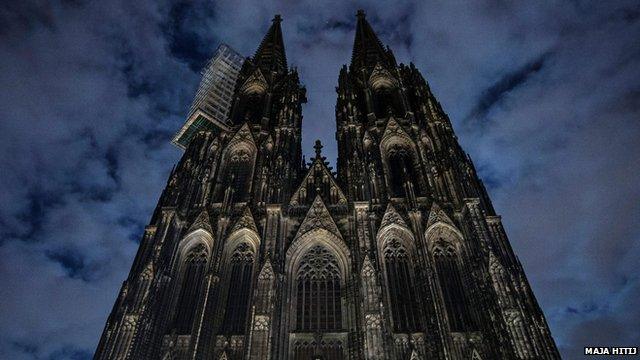Germany Pegida protests: Press mocks 'flop'
- Published
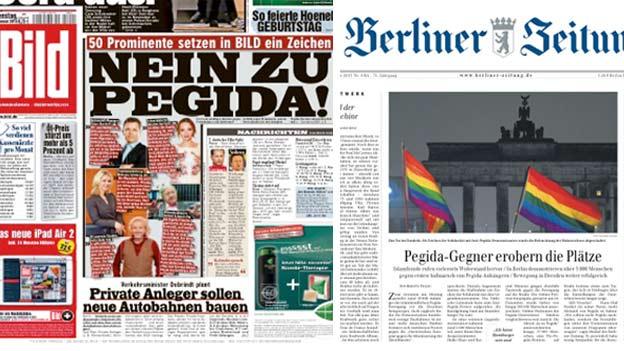
German front pages stress opposition to Pegida
German newspapers are dismissive of Monday evening's demonstrations by a group campaigning against what it sees as the "Islamisation" of Europe.
Many stress the fact that counter-demonstrations attracted many more attendees than those of Patriotic Europeans against the Islamisation of the West (Pegida), with the exception of Dresden, where the group originated and brought 18,000 out onto the streets on Monday.
"Pegida flops away from Dresden," says the headline in the Sueddeutsche Zeitung, external.
The paper's report on the anti-Islam demonstration in Berlin says most of the protesters "have a German flag in their hand, are on average over 60 and often have a little dog with them".
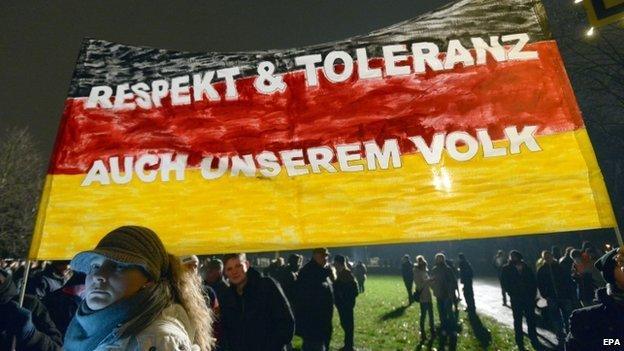
"Respect and tolerance for our people too" says this Pegida banner in Dresden
It also describes the protesters' placards as "rather pathetic when compared to the sea of flags and banners reaching into the night sky at the counter-demonstration on the other side of the crowd barrier".
The Frankfurter Allgemeine Zeitung, external reports the rally of Pegida's Cologne branch as being a "scattered little bunch", and adds that many protesters are known from previous demonstrations in nearby Duesseldorf and Bonn.
The paper's report mocks some demonstrators' slogans - such as "Potatoes not doner kebabs" as "openly Dadaist [surreal]".
"Failed spectacularly" is the verdict of The Tageszeitung, external on Pegida's apparent attempt to expand outside of Dresden, adding that it appears restricted to the far right.
"Many thousands of peaceful democrats show a few hundred xenophobes their limits," the paper says, describing it as a "beautiful and important signal".
But it also warns that there is still "silent sympathy" around for Pegida's aims. "The danger represented by Pegida has not been banished, even in the west of Germany."
'We don't want them'
Germany's biggest newspaper, Bild, comes out strongly in opposition to the anti-"Islamisation" movement.
With the banner headline "No to Pegida", the tabloid's top story is an appeal by dozens of celebrities calling on Germans to oppose the group. Its website urges readers to join an online petition, external against Pegida.
"We don't need the ideology that underlies these demonstrations," the tabloid says in an editorial, external penned by Julian Reichelt. "And above all: We don't want them."
He says Muslims living in Germany are "free people in a free country, and no one ought to tell them how to live", adding that even "ultra-strict, backward" forms of Islam have to be tolerated as long as they do not break the law.
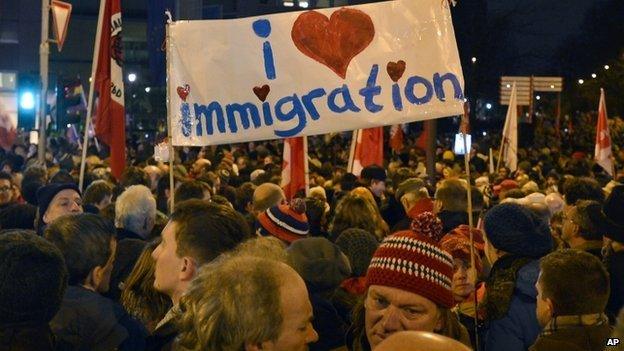
Cologne saw a large anti-Pegida rally
'Justified fears'
Some commentators, however, while condemning Pegida's ideas and aims, warn that its root causes - such as economic dislocation and disaffection with mainstream politics - need to be faced and understood.
A commentary by Berthold Kohler in Frankfurter Allgemeine Zeitung, external praises the Church's decision to switch off Cologne cathedral's lights in protest against Pegida, arguing that the group's aim "cannot be reconciled with Christianity".
However, he adds, both the Church and Germany's politicians will have to find a way to solve the "justified fears and complaints" that are driving some into Pegida's arms.
Similarly, author Monica Maron, writing in Die Welt, external, says not all of Pegida's supporters should be demonised as "neo-Nazis", even though some clearly are.
She says many are justifiably concerned at what she sees as the German authorities' failure to defend secularism against conservative Islamic religious groups, and should be taken seriously.
"We have to relearn how to tolerate other opinions without viewing their representatives purely as enemies and scum," Maron writes. "Pegida is not the illness, it is the symptom."
BBC Monitoring, external reports and analyses news from TV, radio, web and print media around the world. You can follow BBC Monitoring on Twitter , externaland Facebook, external.
- Published6 January 2015
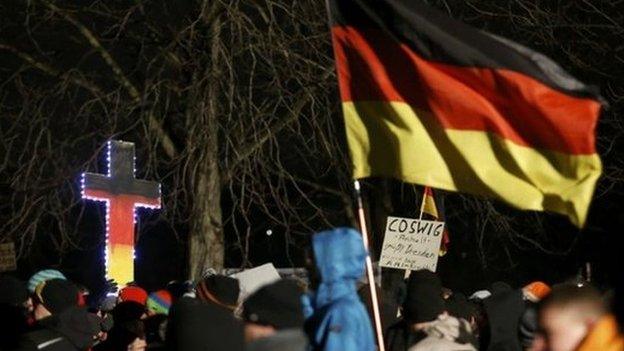
- Published5 January 2015
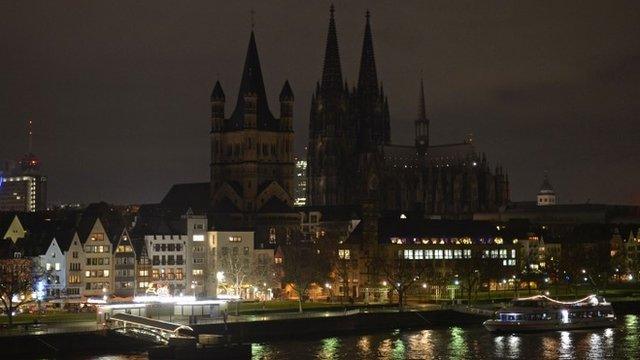
- Published5 January 2015
